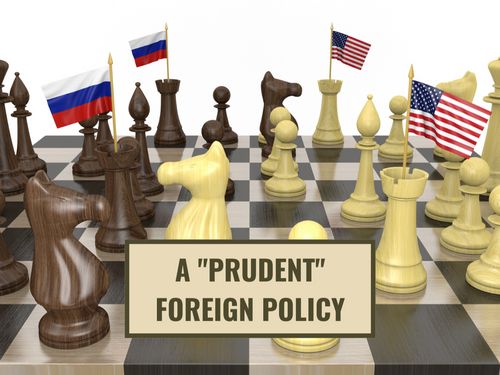The flaw in America's foreign policy
Oct 21, 2021 · 2 mins read
0
Share

The fall of Afghanistan to Taliban have raised fresh questions about America's foreign policy. How should the US project its power abroad? What aims justify military interventions? In Russell Kirk's essay Towards a prudent foreign policy, we find interesting answers 👇
Save
Share
Now that communism has failed in most countries, alternative ideologies will take its place. Kirk predicts that the 21st century will be the ‘American Century’, where a democratic capitalistic ideology will dominate the global sphere. But Kirk isn't thrilled about this.
Save
Share
Kirk thinks the American cultural exports are mediocre and promote a "universal monotony." If the globe becomes flat and we come to share the same morality, it will become an incredibly boring place.
Save
Share
Resistance is the first law of being. Kirk believes in the universal law of individuality, where every living being aims to preserve its individual identity. Nation states are no different, and they resist attempts at Americanization in the name of modernity.
Save
Share
On enforcing the democratic agenda. Forced democratization has led many nations to their ruin, such as North Vietnam. Kirk criticizes the American impulse to undermine regimes in the third world that are not perfectly democratic.
Save
Share
No involvement. Kirk criticizes "the ideology of democratism" advocated by the International Security Council, which pushes for a foreign policy of “involvement”. He theorizes that an imposed democracy would only produce anarchy, and then, forceful rule under a master.
Save
Share
Kirke suggests a prudent foreign policy that is neither “interventionist” nor “isolationist.” America should preserve its national interest abroad and then make peace with, not wage war against, "the diversity of political and economic institutions throughout the world."
Save
Share
Kirk believes that Bush’s military agenda—the bombing of Iraq, the stationing of men throughout the Middle East—aligns more with arrogant nationalists than genuine conservatives.
Save
Share
The art of the possible. To Kirk, prudence in foreign politics means exercising restraint. Politics, whether domestic or foreign, is the "art of the possible," not the art of the ideal. Kirk thinks foreign policy should be informed by history and realistic instead of utopian.
Save
Share
Bottom line. America should not "swagger about the globe," announcing its "omniscience and omnipotence." Nations have a certain hard nature that is the result of their unique history. Imported democratic ideas and institutes will fail to take root when arbitrarily imposed.
Save
Share
0